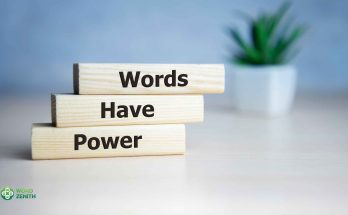In our busy modern lives, it can be all too easy to neglect our mental wellbeing. Work pressures, family responsibilities, and the constant distractions of technology often leave little time for activities that stimulate and nourish the mind. However, research shows that regularly engaging in simple word games and language puzzles can provide powerful cognitive benefits and support long-term mental health.
The Decline of Vocabulary
One important advantage of word games is that they help expand our vocabulary. Numerous studies have shown that vocabulary size decreases with age if not actively maintained. One study found that the average person’s vocabulary shrinks by about 1 word per year after the age of 40.
This “use it or lose it” principle suggests that consistently challenging our verbal skills can offset this decline.
Word games prompt us to dust off those forgotten words tucked away in our brains, while also introducing new and interesting words.
In a longitudinal study of over 11,000 participants aged 55 and older, researchers found that engagement in games such as crossword puzzles and Scrabble was associated with better cognitive performance over time and even delayed the onset of cognitive impairment.
“The more regularly people engaged with the games, the greater their volume of preserved brain tissue over five years,” noted the study’s lead author.
Cognitive Benefits of Word Games
Beyond preserving vocabulary size, word games seem to confer a range of cognitive benefits. Researchers suggest they enhance skills like concentration, memory, and processing speed. They also activate language networks in the brain, exercising those connections much like physical activity strengthens muscles and cardiovascular function.
Studies show people who play brain games like crosswords and word puzzles perform better on tests of memory, reasoning, and perception compared to non-game players. These benefits seem most pronounced for regular players who engage in word games nearly every day.
For example, one study of over 700 participants found that engaging in word games at least 4 days per week was associated with maintaining cognitive speed and flexibility later in life. Researchers noted that the consistent use of word games seemed to boost mental reserves against aging-related cognitive losses.
Supporting Long-Term Brain Health
Along with providing short-term mental exercise, regular word game play may also help stave off long-term cognitive decline. Engaging activities and an active social life have been linked to a lower risk of dementia. Word games seem to check many of these boxes.
A large 14-year study of seniors found that playing games like puzzles and cards was associated with a 15% lower risk of developing dementia. The data showed that engaging in word games just once per week made a difference. More frequent play conferred even greater brain benefits.
Researchers speculate that keeping the mind active with games that involve deep cognitive engagement may build up “cognitive reserve” – extra brain capacity that delays the onset of dementia symptoms. Just like physical exercise, regularly working out our mental muscles can generate long-term payoffs.
Word Games to Try
Convinced of the mental benefits of word games? Here are some engaging options to incorporate into your daily routine:
Crossword Puzzles
This classic word game has remained popular for good reason. Crosswords flex a variety of cognitive skills, from vocabulary to general knowledge to quick recall. Regular practice can improve memory, verbal fluency, and pattern recognition. Mix up easy and challenging puzzles to stay engaged.
Word Zenith
Word zenith offer a simple yet mentally stimulating activity for all ages. Scanning the grid of letters exercises attention, concentration, and focus. For a greater challenge, try unique themed puzzles in all stages and levels.
Scrabble
The classic board game allows you to flex your vocabulary and strategy skills. Look for patterns and openings to place high-scoring words on bonus spaces. Play solo against the computer or engage in head-to-head competition with others.
Wordle
This wildly popular online puzzle challenges you to guess a five-letter word in just six tries, providing clues after each guess. Wordle requires logic and vocabulary skills, while limiting play to just one puzzle per day keeps it from becoming addictive.
Text Twist
Arrange a series of jumbled letters into as many words as you can identify, scoring points for each valid word. This fast-paced game boosts vocabulary, pattern recognition, and mental flexibility under the pressure of a timer.
Making Word Games a Habit
Integrating word games into your daily routine is straightforward:
- Set aside a regular time each day for word play, even if just 15 minutes. Consistency is key.
- Try alternating different word games throughout the week to keep things interesting.
- Play games with others when possible, rather than solo. Social games provide mental exercise along with social benefits.
- Establish a routine time and place to play, like after your morning coffee or during your commute.
- Download word game apps so you can play on the go when you have small pockets of spare time.
- Treat word games as a pleasant break rather than a chore or work assignment. Have fun with them!
Read More: The Power of Word Games – Improving Verbal Fluency and Communication Skills Through Play
Conclusion
The science is clear that regularly engaging in word games has tangible mental health benefits, from strengthening cognitive skills to potentially delaying dementia. But equally important, they provide an enjoyable way to give your brain a workout.
As our daily lives become increasingly busy and technology-driven, carving out time for these cognitively nourishing activities matters more than ever. A daily dose of word games can boost your vocabulary, enhance mental sharpness, and support lifelong brain health.




